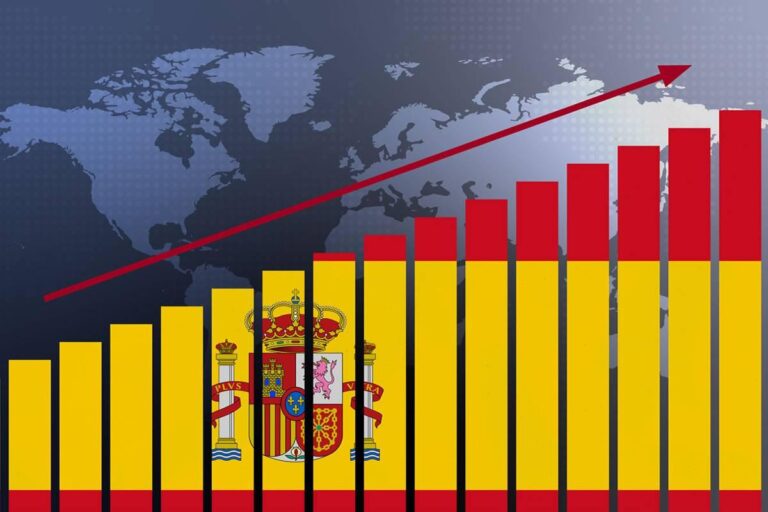Spain’s economy is currently experiencing a remarkable upswing, defying earlier forecasts of sluggish recovery and positioning itself as one of Europe’s fastest-growing markets. Fueled by strong domestic consumption, a resurgent tourism sector, and robust exports, the country’s expansion is capturing international attention. However, amid this optimistic outlook, economists warn that structural vulnerabilities and external risks could stall momentum, raising critical questions about the sustainability of Spain’s economic boom. This article explores the key drivers behind Spain’s growth surge and examines the potential challenges that may threaten its trajectory.
Spain’s Tourism Surge Drives Robust Economic Expansion
Spain’s recent economic boom is largely fueled by an unprecedented surge in international tourism, positioning the country as one of Europe’s fastest-growing economies. Key urban centers like Barcelona and Madrid, alongside coastal hotspots such as Costa del Sol, have seen record visitor numbers, driving up demand in sectors ranging from hospitality and retail to transportation and entertainment. This influx not only boosts consumer spending but also creates a ripple effect of job opportunities, particularly benefiting service industries and small businesses. Economists highlight that foreign direct investment has also gained momentum, tapping into Spain’s stable infrastructure and skilled workforce, which further propels growth.
However, this rapid expansion comes with potential risks that could stall progress. Inflationary pressures, labor shortages, and geopolitical uncertainties threaten to undermine the delicate balance achieved so far. Additionally, ongoing supply chain disruptions and rising energy costs could translate into higher operational expenses, squeezing profit margins for tourism-dependent companies. Below is a snapshot of critical factors influencing Spain’s economic trajectory:
| Growth Drivers | Potential Challenges |
|---|---|
| Record tourism arrivals | Rising inflation |
| Expanding service sector employment | Labor market shortages |
| Increased foreign direct investment | Energy price volatility |
| Robust consumer spending | Geopolitical tensions |
Challenges in the Housing Market Threaten Sustainable Growth
Spain’s housing market is facing significant headwinds that could stall the momentum of its broader economic recovery. Rapidly rising property prices, fueled by increased demand and a shortage of affordable homes, are pushing many potential buyers out of the market. This pricing pressure not only limits homeownership opportunities but also drives up rental costs, exacerbating social inequality and raising concerns about long-term affordability. Furthermore, regulatory bottlenecks and slow permit approvals add layers of complexity for developers looking to expand supply, contributing to a systemic imbalance between housing demand and availability.
Key challenges include:
- Escalating construction costs due to inflation and supply chain disruptions
- Restrictive zoning laws that hamper new developments in urban centers
- Limited access to financing for lower-income buyers and first-time homeowners
- Rising interest rates increasing mortgage burdens
| Factor | Impact | Outlook |
|---|---|---|
| Housing Supply Deficit | Price hikes and affordability issues | Needs policy intervention |
| Growing Rental Demand | Higher rents and cost of living | Potential social unrest |
| Mortgage Rate Increases | Decreased purchasing power | Slower market growth |
Without targeted reforms to boost housing supply and improve affordability, these obstacles threaten to undermine the steady economic gains Spain has enjoyed recently. The housing crisis could derail consumer spending and investment confidence, crucial drivers of sustainable growth. Policymakers face the delicate task of balancing market stability with social equity to ensure that the housing market supports rather than restricts Spain’s path to long-term prosperity.
Policy Recommendations to Secure Long-Term Economic Stability
To sustain Spain’s impressive economic trajectory, it is crucial for policymakers to focus on diversifying key industries beyond tourism and real estate. While these sectors have historically fueled growth, overreliance on them leaves the economy vulnerable to external shocks. Strategic investments in technology, renewable energy, and advanced manufacturing could create resilient economic pillars, encouraging innovation and high-skilled employment. Furthermore, enhancing labor market flexibility and investing in continuous education would empower the workforce to adapt swiftly to evolving market demands, strengthening Spain’s competitive edge globally.
Fiscal discipline remains pivotal in underpinning long-term stability, especially amid rising public debt concerns. Implementing a balanced approach that prioritizes targeted social spending while containing unnecessary expenditures could preserve investor confidence and mitigate inflation risks. Below is a concise framework of recommended policy actions designed to safeguard Spain’s growth momentum:
- Expand R&D funding focused on green technologies and digital infrastructure
- Streamline regulatory processes to encourage startup creation and foreign investment
- Promote regional economic integration to reduce disparities and unlock local potential
- Reinforce fiscal rules that support sustainable public finance management
| Policy Area | Short-Term Aim | Long-Term Benefit |
|---|---|---|
| Innovation & Tech | Increase startups by 15% | Diversified economy |
| Labor Market | Reduce youth unemployment by 10% | Skilled workforce retention |
| Fiscal Policy | Limit budget deficit to 3% | Debt sustainability |
| Regional Development | Boost investment in underserved areas | Balanced economic growth |
To Wrap It Up
As Spain continues to ride a wave of robust economic growth, fueled by a combination of strong consumer demand, a revitalized tourism sector, and increased foreign investment, its outlook remains cautiously optimistic. However, experts warn that persistent vulnerabilities-including inflationary pressures, labor market challenges, and external geopolitical risks-could pose significant threats to sustaining this momentum. Monitoring these factors will be crucial for policymakers aiming to navigate Spain’s economy through an increasingly uncertain global landscape.




